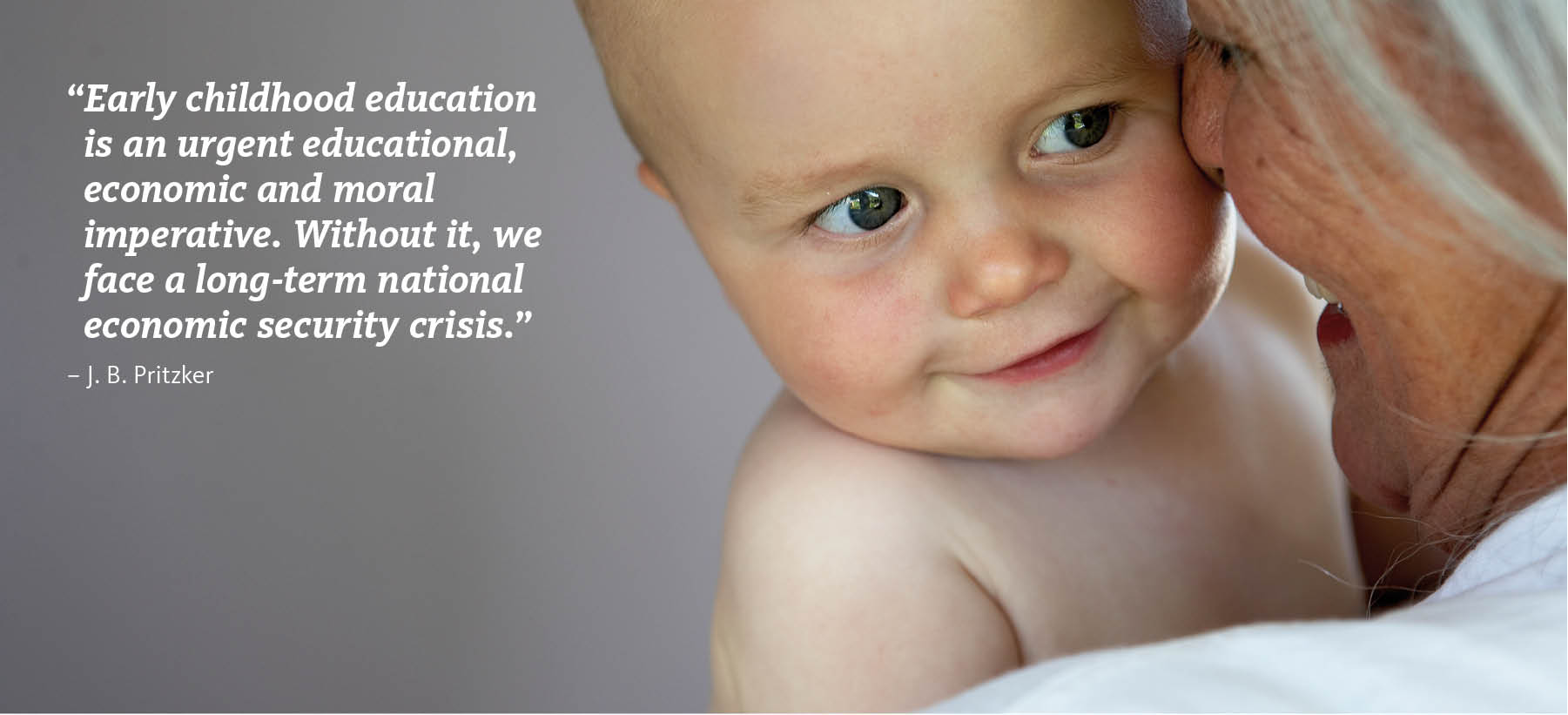

Early childhood is both a good investment and a wise strategy resulting in high economic and social returns for society. Every dollar invested in parent engagement and prenatal and early child development yields a seven-dollar return to the community.
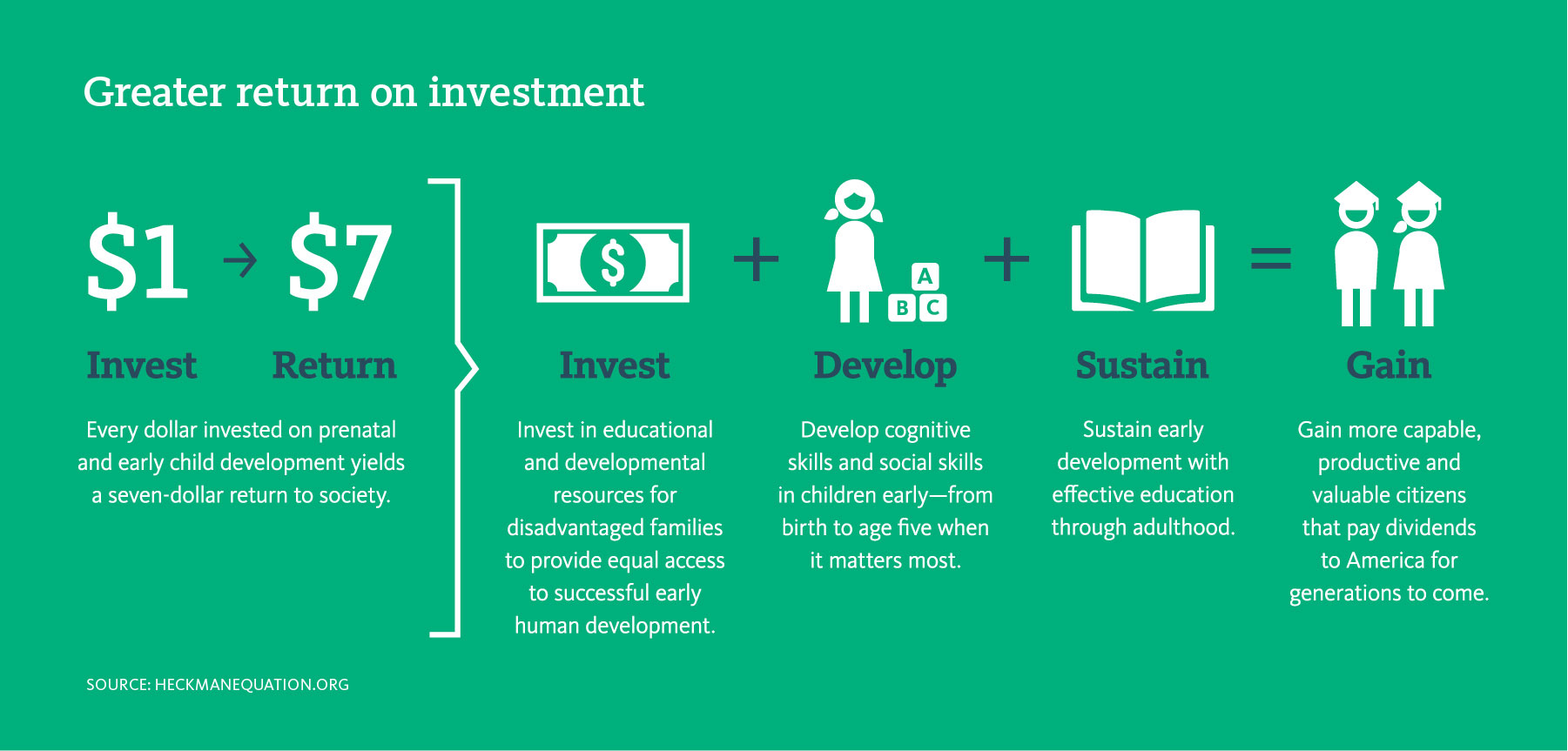
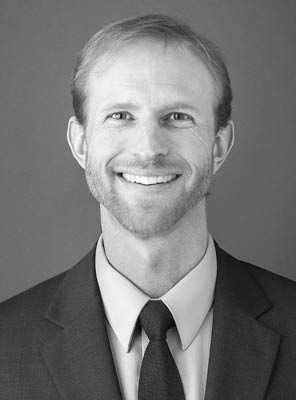
Rob Grunewald is an economist at the Federal Reserve Bank of Minneapolis and a longtime spokesperson for the economic benefits of investing in young children. His research on the importance of early childhood interventions has influenced program development and public policy frameworks in states across the country. Rob has worked with The Atlas Family Foundation on numerous projects.
From your perspective, why is early childhood development so critical?
The early years set the trajectory of a life. The first few years influence the success children have in school and later as adults. If children have support early on, they are placed on a path toward success. On the other hand, if they are subject to adversity early on, they are at grave risk for behavioral and academic difficulty—with lifelong implications—unless there are appropriate interventions.
In your work, which major policy areas do you see most impacted by early childhood development (or lack thereof)?
Certainly the reduction in crime: There is a direct link between what happens in the early years and the criminal justice system. There are also strong implications for the education system. Children who are behind when they arrive in kindergarten tend to remain behind. This impacts our future workforce. Projections show that the growth and quality of the workforce is unlikely to meet the demand of the business sector over next 10, 20 and 30 years. Businesses are demanding workers with higher levels of skills and education, and quality early childhood programs can ensure that children get a good start and succeed in school. With that success, they can achieve higher skills in education and land well-paying jobs. However, our current trajectory suggests that employers may have difficulty finding quality workers over the next few decades. One key solution is increasing investments today in early childhood.
How quickly can we see the impact of early childhood interventions?
There are near-term impacts, such as reducing child neglect and abuse, and lowering special education placements. Early childhood education saves the school system money early on. Also, if you have a high-functioning childcare system that allows parents to work and be productive at their jobs, there’s an immediate benefit to businesses and to the employees who are parents. So while a full return on investment in the early years can come a decade or two down the road, there are also immediate and immensely valuable benefits.
What can we do to better to enhance the economic benefits of early childhood development?
We can spread the word about the benefits of early investments and work to bring resources to this critical area. In addition, businesses can step in and leverage resources to help advance early childhood development. But at the end of the day, we also need public dollars to support children in their early years. There is a strong role for advocacy here.
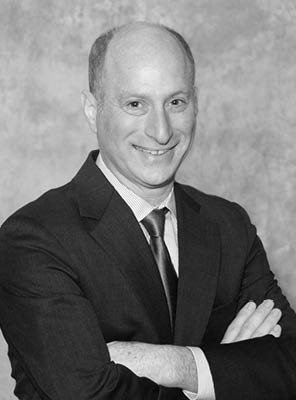
Matthew Melmed is the Executive Director of ZERO TO THREE and an internationally recognized leader and tireless advocate devoted to promoting the health and development of infants and toddlers. Bringing together the perspectives of many fields and cutting-edge research about the importance of early experiences, Mr. Melmed and his team at ZERO TO THREE are committed to translating it into practical knowledge and know-how to serve very young children and their families.
What types of investments should we be making in the early years?
There is a continuum of potential investments. It’s not just about direct services although they are critically important. Those services are highly dependent on public policy and systems, funding and professional development. Three core imperatives to creating effective and responsive services are: 1) changing policy; 2) changing systems in which services are provided; and 3) training the professionals who work with families.
Why is early childhood development so critical?
I think of early childhood development as foundation for success in school and life. I analogize it to building a house. You need a strong foundation upon which to build. If your foundation is poorly laid, you will have lots of problems down the road that will cost lots more money to remediate. The same is true for humans. Early experiences and connections shape the architecture of the developing brain and direct a life-long course for development. What happens when we continue to underinvest in evidence-based support early in life? Well we will continue to default to expensive neurological rehabilitation systems such as special education and criminal justice.
How does it all start with early childhood?
The early years are critically important in terms of identity formation, self-expression; literacy and math skills; and the ability to interact with other adults. Pick any important area you care about. You may be interested in improving health care. Did you know that early adverse experiences literally get under our skin manifesting themselves years later in expensive heath conditions? Or you may want schools to be better. If you want that, you need better raw material to go into the schools. Or say you may be interested in the arts. Then you need to make sure that we are promoting creativity, and building and planting the seeds of future masterpieces. To do that, you want to think about the kinds of experiences that young children have that encourage creativity and curiosity. These are just a few examples. Most philanthropic interests can be traced back to early childhood. The early years are very important.
Aside from the obvious, how is parental involvement critical to high-quality early care and education?
Parents have an incredible amount of influence over their young child’s understanding of the world and their place within it. Parents are a child’s first and foremost teachers. And how parents are with their children is just as important as what they do with them.
How are policymakers significant to prenatal and early child development?
Policymakers need to understand that many families with very young children are highly stressed and at the same time science is providing us a clearer picture of babies’ needs. Policies such as paid family leave (we are the only industrialized country in the world without such a policy) can help. Similarly many babies are being born into poverty and high-risk situations. If we are concerned about the future of our economy and our place in the world tomorrow, we have to start by making investments to support early development today. We must strengthen families.
What’s the bottom line on this issue?
The ultimate leverage and investment opportunity is in the early years of life. If you really want to see a significant return on investment from a social and economic perspective, it’s about investing in efforts that change policies and improve programs that are aimed at the prenatal and earliest years of life…the earlier the better!
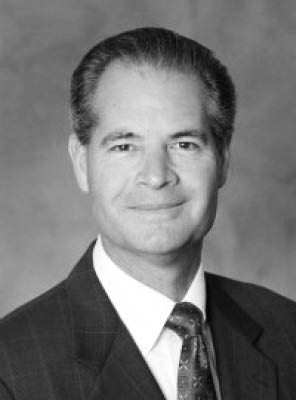
A longtime friend and collaborator of The Atlas Family Foundation, Leonard Aube was the Executive Director of the Annenberg Foundation, and a passionate advocate of wise community investments. Between 1989 and 2014, the Annenberg Foundation—one of the largest family foundations in the United States—issued over $4.3 billion in grants to more than 3,100 nonprofits in 35 countries, in education, culture and arts, the environment, animal welfare and nonprofit capacity building. We interviewed him in Los Angeles in 2014.
Why is early childhood development so critical?
Many foundations’ commitments tend to deal with adult problems, but by the time issues manifest in adults, we are dealing with an exceedingly complex social challenge that is difficult to address.
What’s the intellectual case for early investment?
Early childhood development has a double bottom line: the social benefit and the financial benefit. And not many investments deliver both. Investing in the early years is a pipeline solution to so many of the issues we deal with. Adult problems take more money and more resources. So why not start early? Intellectually, you’re like, hey, that makes sense! I invite those who subscribe to that theory of change and action to engage in early age investments, because the social and financial benefits are inextricably linked.
What is the “purchasing power” of early childhood development?
If I invest $1,000 in 2014 and I look at the return on that investment in 2034, what would I be able to achieve? Research shows that the returns on early childhood development investments are at least seven-fold. Consider this: How much money does the Los Angeles police department spend when there is a murder? Can you quantify the cost? Yes, it’s roughly a million dollars. Here’s the breakdown: Shots are fired. Call goes to 911. Local fire department gets involved. Capital facilities are deployed. They pick that person up, put them in the ambulance and whisk them to closest medical facility. The person dies; he goes to the morgue; an autopsy is performed. Then investigation proceeds.
As we can see in this example, society has to deploy resources. Then we have to catch the person who committed the crime. Try the person. Put them in jail. Over a million dollars spent right there, and nothing positive for the community: one person dead, one in jail, and many exhausted public servants.
The theory of change that I am offering is this: Let’s try to prevent the murder in the first place by investing in programs such as The Summer Night Lights—a public and private partnership undertaken by the City of Los Angeles Mayor’s Office of Gang Reduction & Youth Development. Not only may you prevent a crime, but you just reduced expenses from $1 million to a $100,000. In a similar way, investing in early childhood development does that for a slew of our most complex issues.
How should we make decisions about investments in the early years?
A lot of the policy decisions that we hear about are based on emotional appeal. People intuitively know that infants, as a constituency, are vulnerable so anything we can do for them feels like a moral imperative. But the concrete economic imperative to the discussion can be even more compelling.
How can we help in the early years?
Children get off track in the first three years of life when parents don’t have access to information, and their behavior does not support the wellness and development of that child. Parents are often not getting the right information. Private philanthropy can change that with creative, practical solutions.